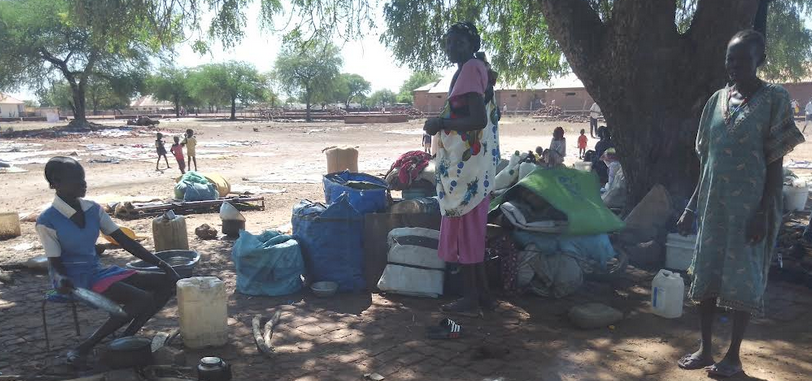The authorities of Warrap State have reported an incident in a Kuajok returnee temporary camp, where four children have lost their lives due to deteriorating health conditions.
The Wartit block, hosting the temporary camp, has been grappling with numerous challenges following the arrival of around 7,000 returnees since May this year. Furthermore, the authorities are expecting an additional 10,000 returnees from the Upper Nile region and Majok-Yithiou area in Northern Bahr El Ghazal State.
Agem Akot, the Warrap State Acting Governor, expressed concern and questioned humanitarian organizations about the health challenges faced by the returnees in their presence. During his visit to the temporary returnee campsite, he acknowledged the grim situation and emphasized their commitment to reintegrating the returnees into local communities.
“We have come here to the place of the Council of Traditional Authority Leaders place (COTAL), a temporary returnees camp. As a directive from the governor, we have assessed the situation and discovered that there are health cases. We have heard children have died in a transit camp due to diseases, lack of food, and transport issues. We are doing our best to reintegrate them into the local communities,” said Agem.
Dr. Alafi Geoffrey, the HealthNet Program Manager, attributed the deaths to malaria, measles, and pneumonia, but he insisted that the fatalities occurred outside the camp. He highlighted the efforts of their medical mobile team and the transfer of severe cases to Mayen-Gumel, where HealthNet provides support, as Kuajok Hospital lacks assistance from partners.
“Our medical mobile team are doing consultation and basic treatment, and for the severe cases, we transferred them to Mayen-Gumel where HealthNet is supporting the facility because Kuajok hospital is not receiving support from any partners,” explained Geoffrey.
However, some returnees have expressed their agony, blaming the deteriorating situation on heavy rains and poor health conditions. Teresa Ajak, a grieving mother who recently lost her child at Kuajok Hospital, pointed out inadequate medicines and congestion as major contributors to the deaths of children.
“My name is Ajak Teresa. We came to Poloch in April and were airlifted to Kuajok on July 2nd. My three years and 3-month baby was sick, and I took him to Kuajok Hospital. He spent 16 days and died because doctors prescribed the medicine, and I did not have money to buy the medication from a private pharmacy,” Teresa shared.
“There is no clean drinking water. This water you see there is dirty because the well is broken, and rainwater flows into the well and people drink it. Besides the dirty water, there are mosquitoes and hunger. So we are really suffering. We came here because it is our land, but it has turned out to be worse. Like what has happened to me has also happened to other parents and their children. About 150 children have died along our way from Renk, Poloch, up to here where we are staying under the tree where a child died recently. The child has not yet been buried, and the government is aware of the situation,” she lamented.
Adut Atak, another returnee, shared her struggles, saying her child is suffering from acute malnutrition, and she has found no solution to her situation.
“My living condition here is worse. My child is sick, and when I go to the hospital, there is no medicine. Doctors are there, but the situation is bad because mosquitoes are many, and there is no shelter, no clean water, and this building leaks when it rains,” said Adut.
The situation at the Kuajok returnees camp is dire, and urgent attention is required from both government authorities and humanitarian organizations to provide essential resources and support to prevent further loss of lives.




